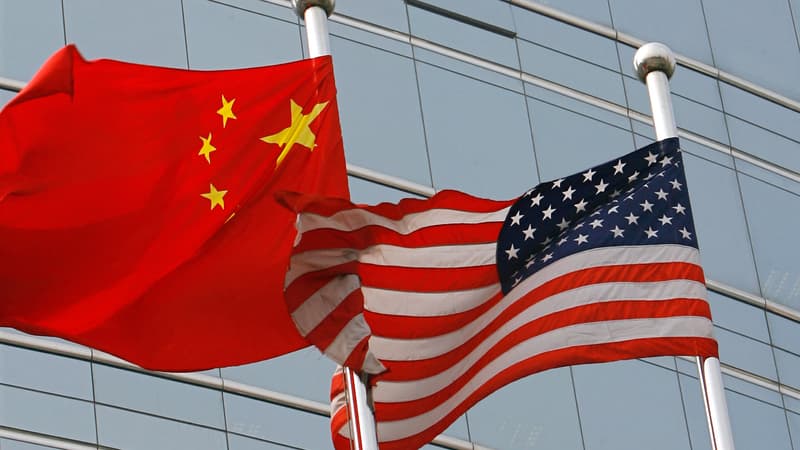Although the United States established differentiated customs duties according to its commercial partners, Donald Trump seeks to avoid bypass, particularly for Chinese companies. To fight this practice, which consists of approved a product for a country in which customs duties are lower, the US president plans to establish a 40% surcharge this Thursday.
This measure is not specifically aimed at a country, but analysts expect it to be mainly affecting Chinese companies, central for the manufacturing industry. Some of them carry out their final assembly in another country, such as Vietnam, to escape the “made in China” label. For Washington, it is about developing less dependent supply chains in China, the opinion of experts, while commercial tensions with Beijing persist despite the relaxation of recent months.
An “abnormal” increase
A decision that aims to “strengthen the policy of customs duties that a real decoupling strategy,” says Josh Lipsky, in charge of the international economy in the Atlantic Council. “It’s about creating enough concern for (other) countries to be tempted by bypass because they know Donald Trump could further increase their customs duties,” he explains.
The risk of a high surcharge is a “perpetual Damocles sword” above the United States commercial partners, abounds Richard Stern, budgetary expert of the Heritage Foundation. From the First Commercial War between China and the United States, during Donald Trump’s first term, Vietnam emerged as the great winner of the reconfiguration of supply chains between the two countries.
The tensions between Washington and Beijing at the beginning of the year led to an increase in the diversion of Chinese products, especially through Vietnam, estimates that Robin Brooks, a researcher at the Brookings institution. According to him, Chinese exports to several Southeast Asian countries experienced an “abnormal” increase at the beginning of the year, when Donald Trump threatened to increase customs tasks.
Final assembly
If it is difficult to determine if these products have finally arrived in the United States, Robin Brooks doubts the possibility that these countries absorb such an increase marked by Chinese products, precisely at the time of the announcement of US customs tasks. “The objective of this possible surcharge is to press for the development of supply channels that occur from China,” said William Reinsch, a researcher at the Center for Strategic and International Studies (CSI).
“At the same time, it implies reducing the points of sale for overproduction and Chinese forcing (China) to absorb them in their domestic market,” he adds. But a success in this area will not be possible, for Washington, just taking other countries in their efforts, exactly what “this penalty aims to encourage” Judges William Reinsch.
“The Chinese strategy that consisted of relocating the final assembly in countries such as Vietnam or Mexico, which had worked during Donald Trump’s first mandate, will be more difficult to achieve now,” says Josh Lipsky. According to him, it would not be surprising that Beijing see that this surcharge as a pointing to China particularly, “because it is the case.” “The question will be to see how China integrates it in a broader context of thawing relations with the United States in the last two months,” he says.
Truce until August 12
After facing surcharge, the two countries accepted a commercial truce, carrying their respective customs tasks to 10% of US products and 30% of Chinese products, a truce that must end on August 12. If the negotiations between the two capitals continue to extend it, the final decision will depend on Donald Trump. Meanwhile, it will be difficult to determine where the products really come from, analysts say.
It will depend on customs to determine whether a product is in fact diverted or not, depending on the degree of transformation in the last country of origin. “It will be very complicated, especially for countries that are economically close to China and if there are no additional means to help customs administration,” William Reinsch anticipates.
Source: BFM TV


